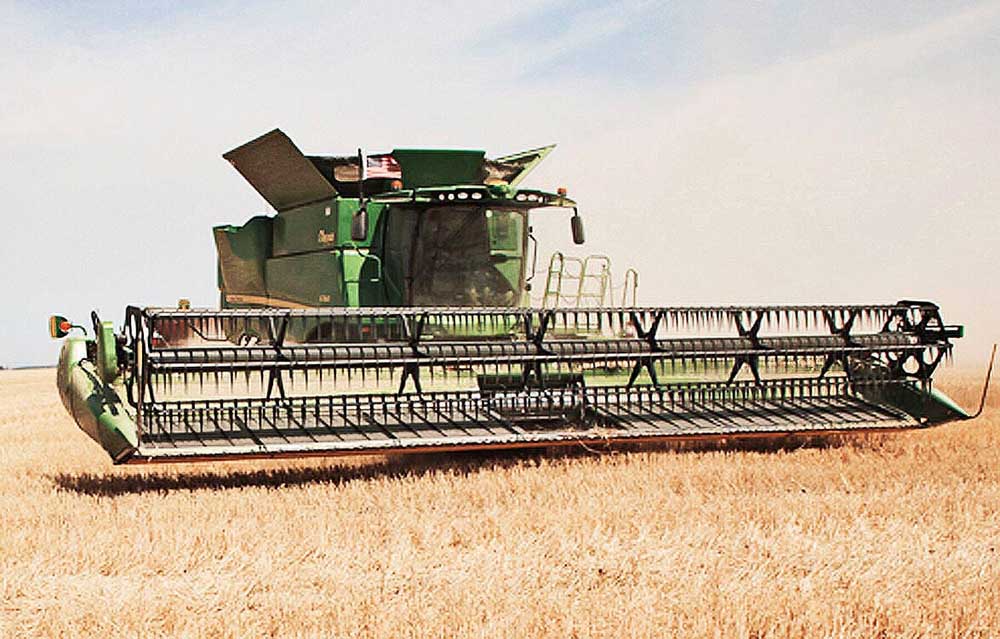Helping farmers with climate stress and grief
Published 1:00 pm Wednesday, August 7, 2024

- A combine harvests wheat in Morrow County in July.
Maud Powell was devastated and didn’t know where to turn.
The creek running through her family’s acreage had dried up, so she and her husband started collecting rainwater, switched crops and adapted as much as they could.
Trending
More climate change coverage
EPA: Growing season continues to grow
Study: Soil health crucial to mitigating climate change impacts
Audit: Oregon DEQ needs more money for climate challenges
Oregon was warmer, drier than normal in 2023
Trending
New plant hardiness map shows higher temps
Then the 2021 heat dome hit. There simply wasn’t enough water to keep farming their property near Jacksonville in Southern Oregon.
Powell and her husband decided to sell the land and debated whether to keep farming altogether.
“We had to deal with all the hard feelings,” Powell said.
Now she’s helping other farmers process the impacts of climate change.
A new project to help
The Oregon State University Extension Service is looking to build resilience in farmers and ranchers with its climate stress and grief for agricultural producers project, headquartered at the Southern Oregon Research & Extension Center in Central Point.
The project is led by Powell, a small farms specialist, and Courtney Olcott, an assistant professor and mental health expert.
They aim to increase awareness and provide strategies and education.
Agriculture is stressful enough with low prices, increasing output costs and new regulations.
But warmer temperatures are leading to greater insect and disease pressure, prolonged drought, labor issues, wildfires, smoke and power outages.
“Things are getting worse,” Powell said.
“There’s quite a bit of work on farmer suicide prevention and farmer hotlines, but we’re looking at this low grade stress that’s constant,” she said.
Olcott said it’s important to evaluate and collect feedback regarding the mental health problem because there isn’t much research.
She’s seeking a grant to teach other OSU Extension Service staff counseling techniques and hopes the project spurs similar initiatives across the west.
A tough culture
Residents in rural areas are underserved by counseling and farmers and ranchers also are supposed to be tough, so they are less likely to seek mental health support.
Powell said grief is usually applied to the death of a loved one, but similar experiences can occur when farmers are at risk to lose their lands or livelihoods.
Feelings such as sadness, fear, anger and denial can surface, as well as a sense of helplessness or hopelessness.
“People are so overwhelmed with it. … Often the response is really to numb out. If you’re not thinking about it, though, you’re not taking any action,” Powell said.
Keeping people on the land
Powell knows about 10 farmers who left the area due to climate-related problems, though some have continued with agriculture. “That’s just people who I worked closely with. A lot of them don’t farm anymore,” she said.
“There are a lot of farms for sale down here, but that’s partly the cannabis industry consolidating in Southern Oregon,” Powell added.
She and her husband made it through their crisis and are operating their organic seed farm, Wolf Gulch Farm, on 5 acres at their new home in Ruch.
Olcott hopes climate stress and grief interventions will save small family farms in Oregon.
That’s important for America because it provides food, fiber and other products.
“Keeping people farming is of benefit to everybody,” Olcott said.








